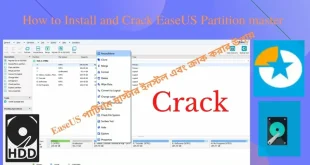Maintaining safe and aesthetically pleasing sidewalks is a critical responsibility for homeowners and municipalities alike. Whether you’re dealing with minor cracks or significant structural issues, hiring a professional sidewalk repair contractor can ensure the job is done correctly and efficiently. This article delves into the key considerations when seeking a sidewalk repair contractor, the costs involved, and the latest trends in the industry.
Why Hire a Professional Sidewalk Repair Contractor?
Hiring a professional sidewalk repair contractor offers several advantages that can significantly impact the quality, safety, and longevity of the repair work. Here are the main reasons to consider hiring a professional:
1. Expertise and Experience
Professional contractors have the necessary skills and experience to handle various sidewalk repair issues. Their expertise ensures that the repairs are done correctly, adhering to industry standards and local regulations.
2. Quality of Work
Professional contractors use high-quality materials and advanced techniques to ensure the repair is durable and aesthetically pleasing. This results in a smoother, more even sidewalk that is less likely to develop future issues.
3. Safety Compliance
Professionals are knowledgeable about the safety standards and regulations governing sidewalk repairs. They ensure the work complies with local codes, reducing the risk of accidents and legal liabilities.
4. Time Efficiency
Experienced contractors can complete repairs more quickly and efficiently than an untrained individual. This minimizes disruption to pedestrian traffic and reduces downtime for property owners.
5. Cost-Effective
While hiring a professional may seem more expensive initially, it can save money in the long run by preventing future repairs and extending the lifespan of the sidewalk. Quality work reduces the need for frequent maintenance and fixes.
6. Proper Equipment
Professional contractors have access to specialized tools and equipment that are essential for effective sidewalk repair. This allows them to perform tasks that might be challenging or impossible with standard equipment.
7. Liability and Insurance
Reputable contractors carry liability insurance, protecting property owners from potential accidents or damages that may occur during the repair process. This provides peace of mind and financial protection.
8. Custom Solutions
Professionals can provide customized repair solutions based on the specific needs and conditions of the sidewalk. They can assess the damage and recommend the best approach to ensure long-lasting results.
9. Project Management
Contractors manage all aspects of the repair project, from obtaining necessary permits to coordinating with local authorities and handling unexpected issues. This ensures a smooth, hassle-free process for property owners.
10. Warranty and Guarantees
Many professional contractors offer warranties on their work, ensuring that any issues arising post-repair are addressed promptly and without additional cost.
Key Considerations When Hiring a Contractor
Choosing the right sidewalk repair contractor involves several important steps:
- Research and Recommendations: Start by researching local contractors and asking for recommendations from friends, family, or online reviews. Look for contractors with a strong track record of quality work and satisfied customers.
- Licensing and Insurance: Ensure the contractor is properly licensed and insured. This protects you from liability in case of accidents or damages during the repair process.
- Detailed Estimates: Obtain multiple estimates to compare costs. A detailed estimate should include the cost of materials, labor, and any additional fees such as permits.
- Experience with Similar Projects: Check if the contractor has experience with projects similar to yours. This can provide assurance that they understand the specific challenges involved.
- Contract and Warranty: Before any work begins, ensure you have a detailed contract outlining the scope of work, timeline, and payment schedule. Additionally, ask about any warranties on the work performed.
Understanding the Costs
The cost of sidewalk repairs can vary widely depending on the extent of the damage, the materials used, and the labor required. Here are some average costs to keep in mind:
- Minor Repairs: Fixing small cracks or chips can cost between $3 and $8 per square foot.
- Leveling and Lifting: For uneven or sunken sections, leveling (or mudjacking) typically costs between $3 and $6 per square foot.
- Full Replacement: Extensive damage that requires complete replacement can range from $10 to $25 per square foot (HomeGuide)
Current Trends in Sidewalk Repair
Several trends are shaping the sidewalk repair industry in 2024:
1. Technological Innovations
- Smart Sidewalks: Incorporating sensors and IoT (Internet of Things) technology to monitor sidewalk conditions in real-time. These sensors can detect cracks, temperature changes, and other stressors, allowing for predictive maintenance.
- Robotics and Automation: Use of robots and automated machinery to perform repairs. This includes robotic concrete laying machines and automated crack-filling systems.
- 3D Printing: Employing 3D printing technology to create custom concrete slabs or repair sections with precision.
home
2. Sustainable Practices
- Recycled Materials: Utilizing recycled materials such as rubber from old tires, plastic waste, and fly ash in concrete mixes to reduce environmental impact.
- Permeable Pavements: Implementing permeable concrete and pavers that allow water to pass through, reducing runoff and improving groundwater recharge.
- Cold Mix Asphalt: Using cold mix asphalt for temporary repairs, which is less energy-intensive than hot mix asphalt.
3. Community and User-Focused Approaches
- Community Engagement: Involving residents in the planning and prioritization of sidewalk repairs through participatory budgeting and feedback platforms.
- Accessibility Improvements: Ensuring repairs include upgrades to meet ADA (Americans with Disabilities Act) standards, such as curb ramps and tactile paving for visually impaired pedestrians.
- Complete Streets Initiative: Integrating sidewalk repairs with broader street redesigns to promote pedestrian safety, including wider sidewalks, better lighting, and street furniture.
4. Preventative Maintenance and Data Analytics
- Predictive Analytics: Using data analytics to predict areas most in need of repair based on historical data, weather patterns, and usage levels.
- Regular Inspections: Implementing routine inspection schedules using mobile apps and GPS to log and track sidewalk conditions.
5. Innovative Materials
- Self-Healing Concrete: Development of concrete that can heal its own cracks using embedded bacteria that produce limestone or other self-repairing compounds.
- Ultra-High Performance Concrete (UHPC): Using UHPC, which is more durable and resistant to weathering and heavy loads, extending the lifespan of sidewalks.
6. Regulatory and Policy Changes
- Funding and Grants: Increased availability of federal and state funding for sidewalk improvements, particularly in underserved areas.
- Policy Reforms: Updating municipal codes and policies to mandate regular sidewalk inspections and repairs, often shifting responsibility from property owners to city governments.
Conclusion
Hiring a professional sidewalk repair contractor is a wise investment in both safety and property value. By understanding the costs involved, conducting thorough research, and staying informed about industry trends, you can ensure your sidewalk repairs are handled efficiently and effectively. Whether you’re dealing with minor cracks or major structural issues, a qualified contractor can provide the expertise and peace of mind needed to maintain your sidewalks in top condition.
home
 Daily Blogger News Stay updated with the latest trends and insights. Your reliable source for daily updates and information.
Daily Blogger News Stay updated with the latest trends and insights. Your reliable source for daily updates and information.







